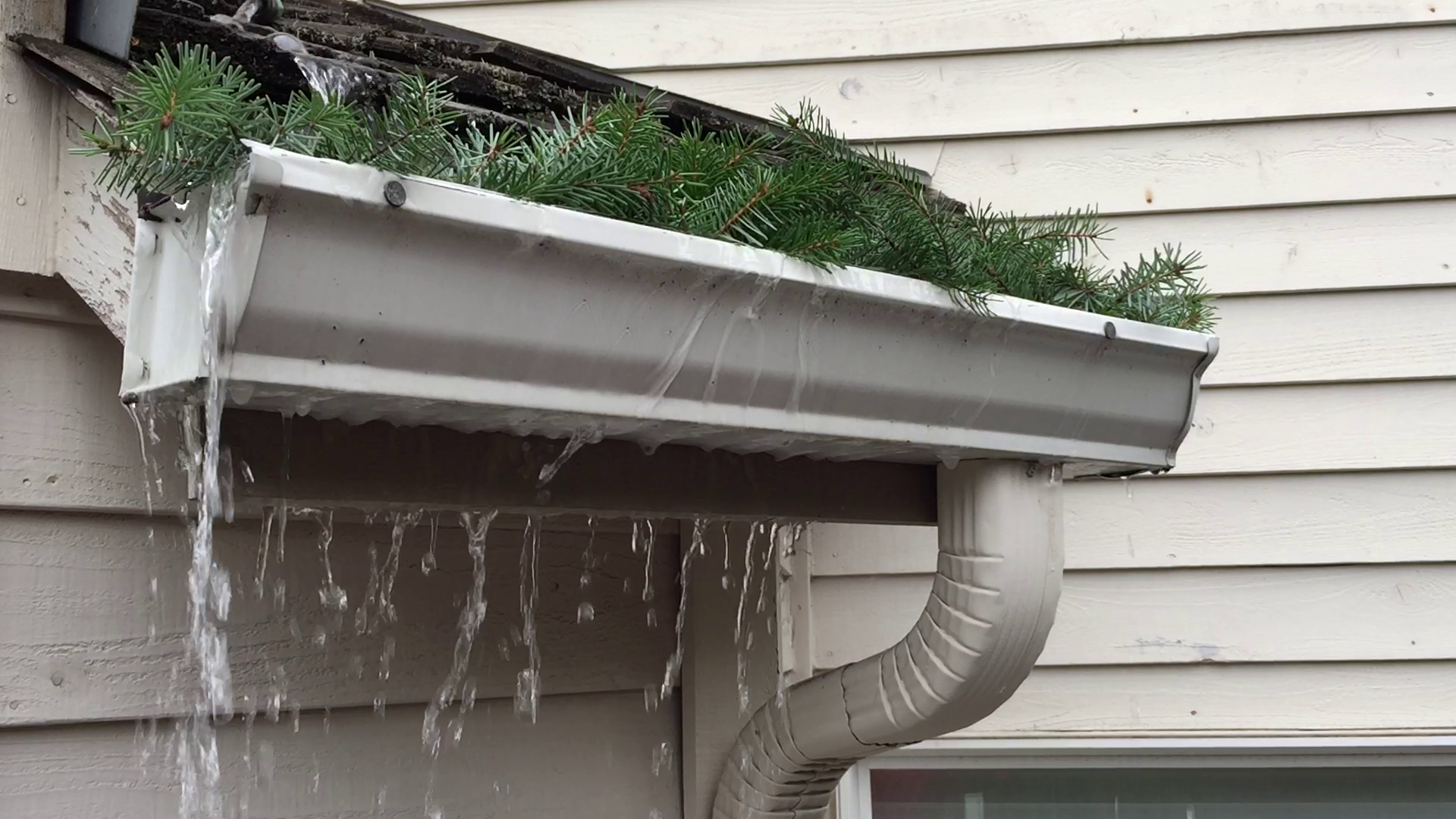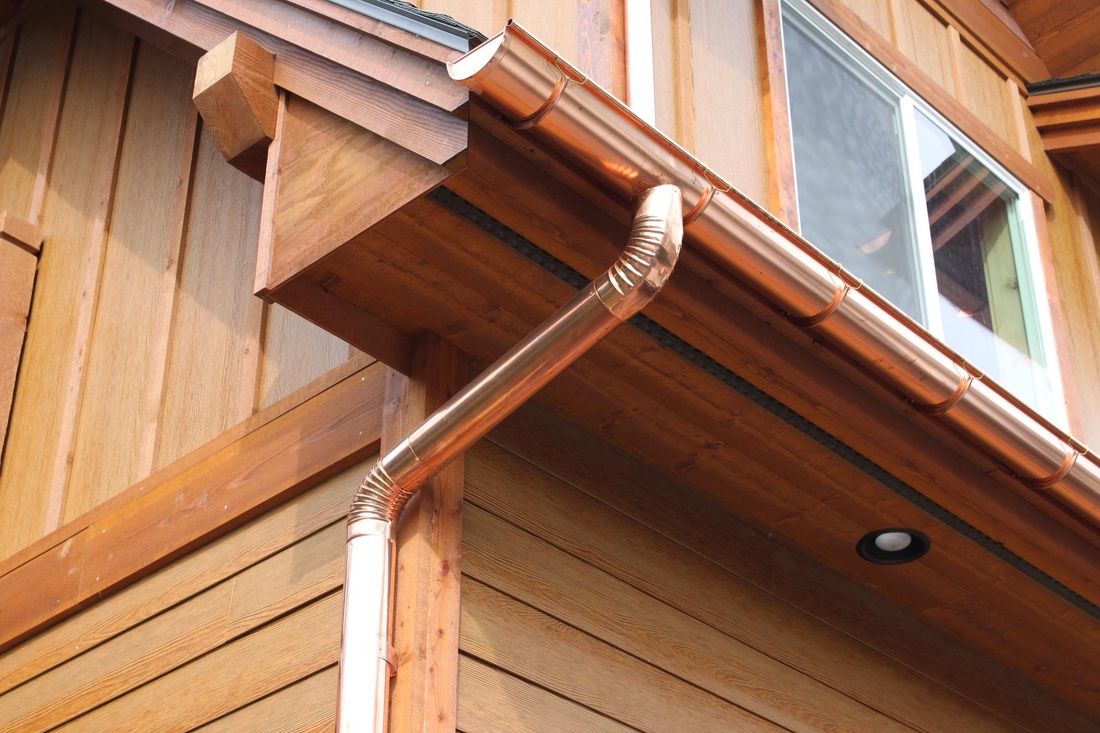How To Know If Your Gutters Have Proper Gutter Slope
by Admin
Posted on 16-05-2024 08:58 AM

Gutters are not required by law in most states, nor are they required in the majority of building codes. However, gutters are a vital part of your home’s drainage system. While most homes will benefit from gutters, some require them more than others.
 For example, homeowners in regions with frequent rainfall, such as the pacific northwest, should invest in gutters. Homes that experience downpours would also benefit from wider gutters to handle the increased rainfall. Here are some situations in which gutters are essential to keep your home in working order:
upward slopes: you’ll want a gutter system if your home sits at the bottom of a hill or other upward slope.
For example, homeowners in regions with frequent rainfall, such as the pacific northwest, should invest in gutters. Homes that experience downpours would also benefit from wider gutters to handle the increased rainfall. Here are some situations in which gutters are essential to keep your home in working order:
upward slopes: you’ll want a gutter system if your home sits at the bottom of a hill or other upward slope.
A gutter system can save you thousands of dollars in water damage repairs. Most homeowners need them for the following reasons. Attic protection: without gutters, excess moisture can seep through your roof and into your attic, causing mold and mildew. Additional structural problems include wood rot, stains and fungus. Basement protection: excess rainwater can flood your basement, resulting in expensive repairs or mold and mildew. Clay soil: porous soils, such as red clay, retain excess water and draw it toward your home, damaging your foundation. A gutter system with a drainpipe can redirect this water safely. Landscape or flowerbeds: a gutter system with extended downspouts directs water farther away from your property, protecting your garden from soil erosion.
Gutters control the water that hits your roof, directing it into a single flow that moves away from your house. Without gutters, it’s possible that water runoff will build up around your home, getting into your foundation and causing water damage over time. Gutters are not able to move water away effectively unless they’re frequently cleaned—and damaged gutters can actually cause more damage than not having gutters at all because they can cause water to pool along your roof. In addition to moving water away, gutters can also help to prevent erosion by controlling water runoff. This protects any landscaping that’s around a property, though, understandably, if there is no landscaping around the property it may not be as significant an issue.
Offer Protection Against Water Damage
Definitely! detached garages, in particular, are more inclined to need protection from water damage.
 When you don’t have a gutter system in place, rainwater can pool at the entrance of garage doors. Then, it’ll either become puddles of standing water or seep under the doors, causing extensive damage to your stored items, such as vehicles, tools, and others. As with any part of your home, the constant splashing of water can wear down the foundation and the surrounding concrete over time.
When you don’t have a gutter system in place, rainwater can pool at the entrance of garage doors. Then, it’ll either become puddles of standing water or seep under the doors, causing extensive damage to your stored items, such as vehicles, tools, and others. As with any part of your home, the constant splashing of water can wear down the foundation and the surrounding concrete over time.
Although the legal answer to this question is no, gutters are still necessary for the vast majority of homes looking to avoid long-term water damage. We’ll explain in greater detail in the sections below, but here are the quick bullets as to why gutters are necessary: foundation protection: by channeling water away from the base of your home, gutters are key to protecting your home’s foundation from leaks and water damage. Basement protection: if you have a basement, you’ll require gutters. Without gutters, your basement is far more susceptible to leaks and flooding from stormwater that will pool around your house.
Many people believe that they do not need gutters installed in their homes if they have a slab foundation. This is because they believe that since there is no basement to protect from water damage there’s simply no need for gutters. There’s nothing that needs protection, it’s just solid ground, right? this is not true at all.
Help Preserve The Structural Integrity Of The Property
Rainwater management: gutters are designed to collect rainwater that falls on the roof and channel it away from the house. Without gutters, rainwater would simply flow down the roof’s surface and directly onto the ground surrounding the foundation. This can lead to erosion, flooding, and damage to the foundation over time. Gutters help manage the flow of rainwater, ensuring it is directed away from the house, and protecting the structural integrity of the property. Preventing water damage: metal roofs are highly efficient at shedding water due to their smooth surface. However, during heavy rain or in areas with frequent downpours, the volume of water can overwhelm the roof’s shedding capacity.
Rain gutters are responsible for redirecting rainwater away from your home, including its siding, doors, windows, and foundation. Here are a few why they are important: avoid foundation issues with rain gutters — while your property’s foundation was built to last, it is not indestructible. When a foundation is exposed to water, its integrity is weakened, and it may not withstand the potential damages. Without gutters, rainwater runs down the sides of your home and can pool around its base. Over time, and as this happens repeatedly, your foundation can form cracks and pores that can compromise your property’s structural integrity.
While there are some advantages to not installing gutters, there are also some significant downsides. The most obvious is that your home is at a much higher risk of water damage. This can be a major problem if you live in an area with heavy rainfall or snowfall. Additionally, without gutters, water can damage your landscaping, which can be costly to repair. Another potential downside of not installing gutters is that it can make your home more prone to basement flooding. This can be a major problem if you live in an area with heavy rainfall or snowfall. Additionally, without gutters, water can pool around your foundation, which can lead to mold and mildew growth in your home.
The gutters along your roof catch rainwater as it washes down the side of the roof. This water is channeled through downspouts where it exits away from your home. By redirecting rainwater, the gutter reduces erosion of the ground against your home and may greatly decrease the risk of basement flooding and foundation damage. In some circumstances, the downspout empties into a tank or barrel for garden use during dry weather.